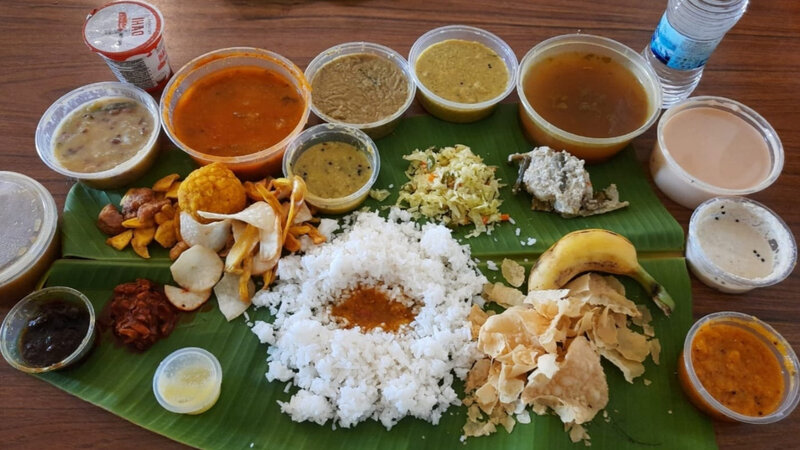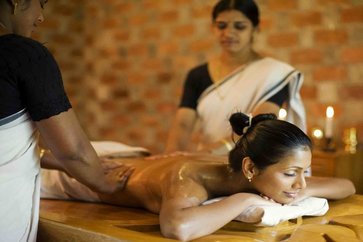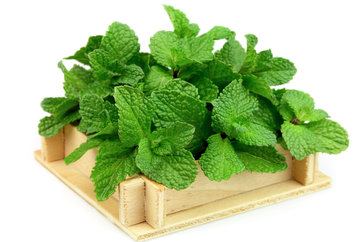Ayurvedic Dietetics – The Principle Practice of Nutrition & Diet in Ayurveda
Ayurvedic dietetics classifies foods according to their taste, energy, and post-digestive action. Ayurvedic dietetics is a full-fledged component of Ayurveda, a traditional Indian medicine, just like yoga, herbal medicine, aromatherapy or Ayurvedic massage.
The term “Ayurveda” in Sanskrit means “knowledge of life or longevity”. It itself means much more than a health system, Ayurvedic medicine is a way of life on its own. It is rightly designed to better and maintain the health of all overall body and mind.
The Principle of Ayurvedic dietetics
In Ayurvedic medicine, each individual is categorized into three doshas, they must have a specific diet, adapted to his temperament, and aimed at correcting his imbalances.
The diet is determined differently according to the seasons of the year, the human being must know and understand his nutritional needs as per their ayurvedic body type.
While Western dietetics classify food by groups according to the model of the pyramid, Ayurvedic dietetics is based on the science of the six tastes. Each food and plant has a flavor (sweet, sour, salty, pungent, bitter, and astringent), energy (warming or refreshing), and post-digesting action.
Ayurvedic dietetics also take into account the basic constitution of each person, its possible temporary imbalances, and the state of its digestive capacity.
Why consult a dietician trained in Ayurveda?
According to Ayurvedic dietetics, the consumption of certain food products causes an imbalance of doshas (or biological humor). The three doshas (dosha Vata, dosha pitta, dosha Kapha) are uniquely combined for each individual. Their imbalance causes the appearance of symptoms and diseases.
Concretely, Ayurvedic dietetics is mainly a preventive method to give the best nutrients to the body to keep it healthy. It is therefore recommended particularly in the context of chronic fatigue, decreased vitality, or immune defenses.
Basic Principles Of An Ayurvedic Diet
Ayurvedic dietetics is based on its golden rules.
- Take your main meal at lunch when the digestive capacity is at its highest level.
- Vary your meals while avoid eating fruits with meals. It is best to consume fruits at least 30 minutes before or after the meal.
- Do not consume leftovers beyond 24 to 36 hours after cooking. Also, avoid consuming them again with fresh products.
- Give priority to foods that are hot or served at room temperature that favor the digestive process. Conversely, avoid cold, icy drinks, and foods coming directly from the refrigerator, as it can slow down this process of digestion.
- Always eat positively in a quiet environment, chewing slowly to promote digestion.
- Conversely, avoid eating under stress, anxiety, or lack of appetite.
- Wait between 3 to 6 hours, according to your constitution, before eating again. This practice will prevent overloads caused on your digestive system.
- In Ayurvedic dietetics, it is always advisable to focuses on the type of food served on or off the plate while eating.
- Give priority to organic foods and fresh ones, try to avoid possible residues of fertilizers or pesticides in food.
- Remove “empty foods”, those are no longer of nutritional interest such as (white flour, refined products)
- Reduce consumption of stimulants such as alcohol, tobacco, chocolate, coffee, tea, and soda.
- Reduce animal protein such as red meat, high in saturated fat.
- The Ayurvedic dietician also offers a course of supplements or preparations based on certain plants to relieve specific disorders.
Contraindications to Ayurvedic dietetics
Although ayurvedic medicine advocates a natural diet that is safe. But there are some contraindications, especially in case of allergies to foods, food supplements, plants (herbal medicine), or certain species (aromatherapy). In the case of pregnancy, seek the advice of your doctor.
Is it necessary to consult Ayurvedic dietetics?
Yes, it is necessary as Ayurvedic Dietetics are different for the individual. The two categories of professionals can provide Ayurvedic dietary consultation, either an Ayurveda practitioner or an Ayurvedic diet consultant.
If this is your first approach to Ayurvedic dietetics, it is advisable to make an appointment with an Ayurveda practitioner who will offer a consultation on a wider spectrum, to assess your entire fashion of life.
In this type of practitioner, the consultation begins with an Ayurvedic assessment to determine your natal constitution (the original combination of your doshas) and your state of imbalance.
The interview is conducted around observation, touch, and interrogation:
- Examination of the pulse, tongue, eyes, skin, and nails.
- Information about your lifestyle, the state of your digestion and your elimination (saddle, urine, sweat), your diet, your sleep, your mental and emotional functioning.
- Taking into account your medical history.
At the end of the interview, the practitioner determines a diet adapted to your nutritional needs according to the dominance of your dosha (Vata for air, pitta for fire, Kapha for water).
The frequency of sessions depends on the practitioner and the balance sheet. The goal is to integrate little by little the advice of the practitioner to make a smooth change in your lifestyle.
The assessment proposed by an Ayurvedic dietetic counselor is faster because it deals only with the problem of diet. The examination of the pulse, the eyes, and the language are not systematic.
How to choose a dietitian?
Ayurvedic dietetics is not a recognized medical practice and is taught as such in medical schools. However, most health educators in Ayurveda have additional training in dietetics or massage. As with Ayurvedic medicine in general, dietary advice does not replace medical treatment appropriate to a disease.
Some private institutes offer Ayurvedic degrees after one to four years of study. These courses are not officially recognized by the State, unlike in India there is Ayurvedic university education.
However, it is recommended to choose your practitioner in the directory of an association recognized as the association of professionals in Ayurveda.
Duration and price of an Ayurvedic dietetic session
A consultation in Ayurvedic dietetics lasts about an hour. It includes an analysis of three doshas and tips for a healthier lifestyle and a better diet. The average price is between 50 and 100 dollars, according to the region.
The best books on the ayurvedic diet
- “The Ayurvedic Diet”, Book by Reenita Malhotra a book to discover the benefits of Ayurvedic dietetics through advice and recipes.
- “Ayurveda: The Science of Self-healing” a Practical Guide, Book by Vasant Lad, a book to discover your constitution according to Ayurvedic principles and adopt the best way of life to avoid the disease.
- “Ayurvedic Cooking for Self-healing”, Book by Usha Lad and Vasant Lad, a book that gives information formulated using herbs and spices to help balance the constitution of each person and gives treatment methods mainly through nutrition and herbal medicine.



























Birla Ayurveda offers you the gift of Holistic Health through Authentic Ayurveda.
We treat the individual as a whole, maintaining the balance of body consultation, these results in the revitalization and holistic health.
Medicinal oils and herbs from Kerala are used for Ayurvedic therapies.
Talented Kerala therapists, duly guided by our experienced Ayurveda doctors, ensure an authentic and personalized experience, each time.
Birla Ayurveda is renowned for successfully treating ailments such as chronic arthritis, sinusitis, migraine, slip disc, lumbar spondylitis, sciatica, stress, obesity and asthma, as well as neuromuscular and skin related disorders.
We also have exclusive Ayurveda wellness membership packages, which comprise preventive and wellness therapies that keep bone and joint
problems, obesity, stress & strain, hair and skin ailments, diabetes and various other lifestyle disorders at bay, and enable you a holistic state of living.
Birla Ayurveda has over 15 therapy centers in India, which are a combination of wellness Ayurveda, day care treatment centers, stay facilities,
Ayurveda medicines and Ayurveda doctor consultation.
“Hi,
My name is Raj Gaur I am an author of WaYs2rOcK.com. I like to read new health-related things. I like your information about how Ayurvedic Dietetics supports our health.
I also published an article about Ayurveda like to share with your audience.
Very Informative Blog!!!!
Care that never quits is what you will find exactly over here at Birla Healthcare. Birla Healthcare is a complete fore forth that strives to spread the healthy aura from top to the bottom for each of you.
Birla Healthcare is a transformational idea outputted by the greatest known healthy personality, Mr. Yash Birla. He himself being a strong yet healthy personality shares his concerns of health and well-being with the people.
For More Information Visit Our Website: https://birlahealthcare.com
Ayurveda also insists that the dietary needs of each and every individual are different and hence specific body constitutions need specific diet. The importance given to diet and nutrition in the ayurveda system of medicine, then, cannot be under estimated.